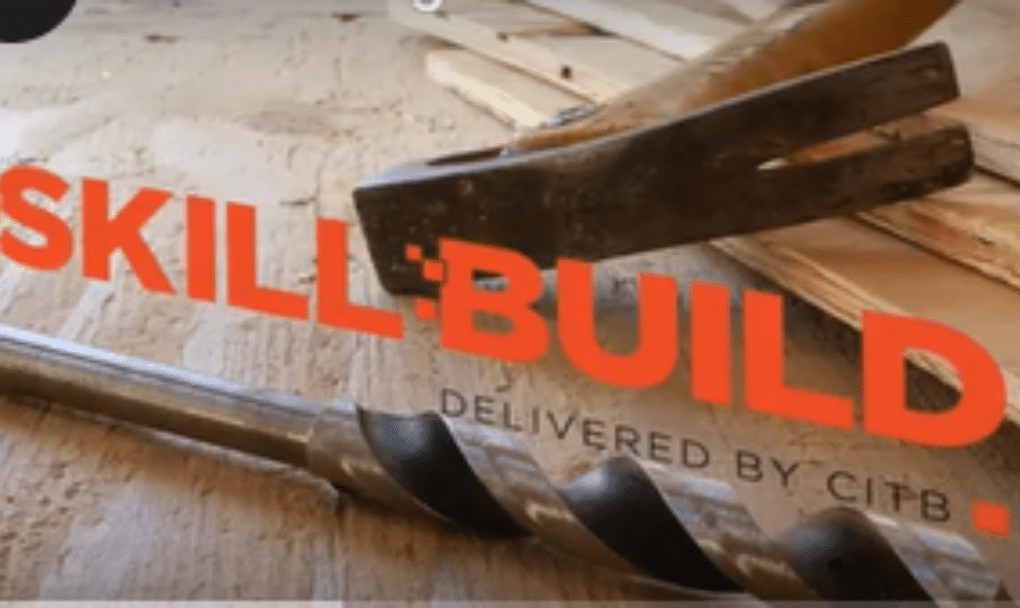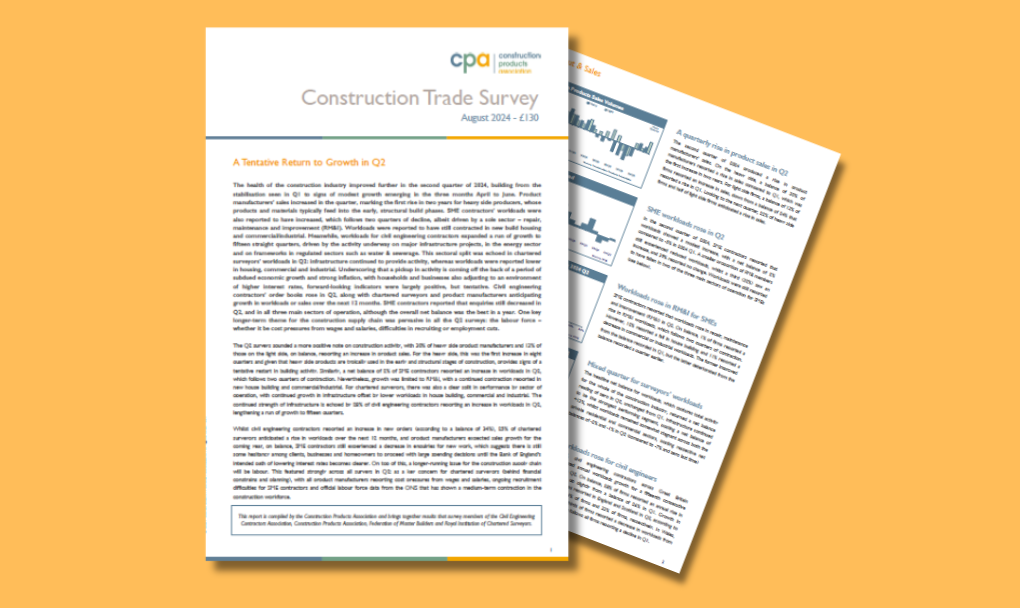
by Clair Mooney | 3 Dec, 2024 | Contractual and Legal, Payments
Healthy cash flow is critical for small business’ survival and growth. Late and long payment times disrupt the cash flow cycle and can prevent a business from paying its bills, eventually leading to business failure. In 2023 15% of small businesses and medium sized enterprises cited cash flow and late payments as an obstacle to running their businesses.
The new Fair Payment Code has been launched to encourage businesses across the UK to pay promptly. Businesses may now apply for the Award tier that best suits them: Gold, Sliver or Bronze. The tiered system of Awards is aimed at awarding best practice and driving improvements in payment performance. The three Award tiers are:
- Gold Award – for those firms paying at least 95% of all invoices within 30 days
- Silver Award – for those paying at least 95% of all invoices within 60 days, including at least 95% of invoices to small businesses within 30 days
- Bronze Award – for those paying at least 95% of all invoices within 60 days
In addition, every business granted an Award agrees to abide by the Code’s principles of being Clear, Fair, and Collaborative with their suppliers.
The new Fair Payment Code replaces the Prompt Payment Code. It will be more aspirational by supporting businesses that wish to improve payment practices and helping them move up from Bronze to Silver, and to Gold over time.
The Fair Payment Code Awards are for two years, and every business will need to reapply for their Award at the end of each two-year period. There will also be a robust complaint system in place for businesses to highlight to the OSBC those not meeting the requirements of the category of their Award (Gold, Silver, or Bronze) or not following the principles of the Code.
Businesses can now apply of any Award level of the new Fair Payment Code.
Len Bunton, Owner of Bunton Consulting and FIS resident QS said:
“The Fair Payment Code will be welcomed by the construction industry as it focuses on prompt payment. The introduction of measures to reward businesses for adopting fair payment practices with their suppliers is also a major step forward. It is important to highlight the emphasis on establishing clear and fair payment terms in writing before work begins, and further, that suppliers are made aware if payment is likely to be delayed.
“The Code emphasises fairness and collaboration, with transparency being a key factor as well.”
Small Business Minister Gareth Thomas said:
“Late payments cost businesses tens of thousands of pounds and is one of the biggest reasons businesses collapse and today’s measures look to tackle the issue head on.
“This government’s primary ambition is clear: to go for growth. To do that, we must unleash the potential of our entrepreneurs.”
Liz Barclay, Small Business Commissioner added:
“The Fair Payment Code is our response to all those suppliers who begged for a more aspirational, robust and ambitious approach to changing the business to business payment culture in the UK. It also gives a clear signal of intent on the part of Government.
“We want suppliers paid within 30 days with payment beyond the due date a rare event. We want longer contractual payment term to be recognised as potentially detrimental to vital supply chains. We want businesses of all sizes to commit to fair and quick payments and to avoid harmful disputes. This new Code will drive a better payments culture and benefit everyone.”
For any immediate questions, head to the FAQs page at www.smallbusinesscommissioner.gov.uk/fpc Or you contact the Small Busness Commissioner directly via email at fpc@smallbusinesscommissioner.gov.uk.

by Clair Mooney | 3 Dec, 2024 | Building Safety Act
The Ministry of Communities and Local Government (MHCLG) has today published the Remediation Acceleration Plan.
The aim of this plan is that by the end of 2029, all 18m+ (high-rise) buildings with unsafe cladding in a government funded scheme will have been remediated. Furthermore, by the end of 2029, every 11m+ building with unsafe cladding will either have been remediated, have a date for completion, or those responsible will be liable for severe penalties.
Key measures in the plan include:
- action to identify buildings needing remediation through a review of 175,000 building records by the end of March 2025;
- the intention to introduce new legal duties on those responsible to take action and make their buildings safe;
- metro mayors convening regulators and preparing joined-up local plans to drive remediation in their areas;
- additional funding and guidance for regulators to intensify enforcement activity;
- new enforcement measures to hold those responsible to account;
- a joint plan with developers, published today, to fix buildings faster covering over 95% of buildings to be remediated by developers;
- action to begin accelerating remediation of social housing while working with the sector to announce a long-term strategy in Spring 2025;
- supply chain support to facilitate delivery as remediation pace increases;
- information on how those responsible for the building safety crisis will be held to account;
- the extension of the Waking Watch Replacement Fund until the end of March 2026; and
- further measures to ensure that residents are supported and protected throughout the remediation process.
The plan also confirms the introduction of a Building Safety Levy on new residential developments which will raise around £3.4 billion for remediation. The intention is for the levy to come into force in Autumn 2025.
In addition, a further consultation starts today to consider how to ensure that leaseholders are only charged a fair and transparent insurance fee for work done to arrange insurance. The consultation closes on 24 February 2025.
Finally, in relation to product manufacturers, action will be taken to ensure that those involved in the Grenfell tragedy will be excluded from government contracts. It also commits to system-wide construction products reform, including proposals on liabilities, robust sanctions and penalties against manufacturers.
Below are a number of additional documents from the gov.uk website on the same topic which were released on 2 December 2024.

by Clair Mooney | 21 Nov, 2024 | Sustainability
On 30 October 2024 the Government issued its response to the consultation on the introduction of a UK Carbon Border Adjustment Mechanism (CBAM). CBAM will ensure that UK decarbonisation efforts lead to a true reduction in global emissions rather than simply displacing carbon emissions overseas. It will place a carbon price on goods that are at risk of carbon leakage imported to the UK on carbon intensive sectors, such as aluminium, cement, iron and steel. The UK CBAM will come into force on 1 January 2027. Businesses importing £50,000 or more of CBAM goods over a 12-month period will need to comply with the UK CBAM.
The glass and ceramics sectors are not in scope for this deadline to allow government and industry time to address feasibility concerns raised throughout the consultation process. It is likely that those will be included at a later date.
More details can be found here: Government Response
If you would like to join the CBAM mailing list to stay informed of policy developments please contact cbampolicyteam@hmrc.gov.uk

by Clair Mooney | 21 Nov, 2024 | Main News Feed
The Procurement Act 2023 and the supporting Procurement Regulations 2024 come into force on 24 February 2025. The Act, along with the Procurement Regulations 2024 and the National Procurement Policy Statement provide a new regime for awarding public contracts in England, Wales and Northern Ireland ending the obligation for the UK to comply with EU Procurement Directives. The Scottish Government has opted not to join the rest of the UK having transposed EU Directives into their own statute book. However, the Act does apply to contracting authorities in Scotland which are either cross-border bodies or exercise wholly reserved functions.
The reforms open up public procurement to new entrants such as small businesses and social enterprises so that they can compete for and win more public contracts. The Act also embeds transparency throughout the commercial lifecycle.
The Procurement Regulations 2024 is secondary legislation which applies a broad range of powers within the Procurement Act 2023 providing additional details concerning various aspects of the new procurement regime.
The National Procurement Policy Statement (NPPS) is a statement published by the Government to communicate to contracting authorities policy objectives relating to public procurement. Contracting authorities must have regard to such a statement when they are carrying out a procurement. This guidance provides some explanation about the duty. The current NPPS has been withdrawn and is currently being redrafted. To read more about the NPPS please click here.
The Procurement Act will govern new procurements started after 24th February 2025. Procurement commencing prior to the Act coming into force will continue to be governed by the current regime meaning that two regimes will run parallel for some time.
To view the Procurement Act 2023 please click here.
To view the Procurement Regulations 2024 please click here.

by Clair Mooney | 18 Nov, 2024 | Market data
The headline results for the State of Trade survey continued to signal signs of improvement for construction product manufacturing in the third quarter of 2024. Compared to Q2, product sales volumes increased for both heavy side and light side firms, on balance, for 55% of the heavy side and 8% on the light side. Comparing sales volumes with the same period of a year earlier, 27% of heavy side manufacturers still reported a fall, whilst a balance of only 8% reported an increase on the light side. These dynamics mirror those reported in official ONS construction output data, with monthly and quarterly increases in activity over Summer, but activity still lower than a year ago.
FIS members can download the full findings from the CPA State of Trade survey here.

by Clair Mooney | 8 Nov, 2024 | Main News Feed
At its AGM on 7 November, FIS announced its newly elected Board Directors, along with its new President.
Ian Strangward, Managing Director of contractor member Architectural Wallsz, has been on the FIS Board of Directors for three years and will now start his two-year Presidency, following his appointment by his fellow directors.
Ian has more than 30 years’ experience in the construction industry and at his first address to members, Ian said:
“With the committed team and strong community we have built, I look forward to continuing to work with my fellow Board members in ensuring FIS continues to be member led and is making a difference for individual members and the sector as a whole.”
Ian also thanked outgoing President, Philip Brown for his phenomenal leadership and dedication to the industry. Philip will remain on the Board as Immediate Past President.
Also joining the Board from 7 November as executive directors are, Andrew Measom of Measom Dryline and Helen Tapper of Tapper Interiors, both contractor members of FIS, and Alan Brown of Fire DNA, Lucia Di Stazio of Nevill Long, Richard Mason of British Gypsum and Nigel Watkins of Rockfon, all supplier members of FIS.
Iain McIlwee, FIS Chief Executive welcomed new Board members and said:
“We’re delighted to announce these appointments to continue the strong leadership at FIS and take FIS on to its next chapter of growth and success.”
Full details on the FIS Board is available at https://www.thefis.org/about-us/board/
FIS members can read the minutes of the AGM here.

by Clair Mooney | 16 Oct, 2024 | Awards, Skills
The shortlist for the 2024 Training Awards has been determined by our panel of judges.
Celebrating excellence and achievement in plastering, interior trades and related professional occupations, the Training Awards are a collaboration between FIS and the Worshipful Company of Plaisterers.
These awards acknowledge the accomplishments of apprentices and students who have exceeded expectations, training delivery by colleges and training providers, mentors and others who have supported sector training, and lifetime contribution to sector training.
Apprentice of the Year – Plastering Shortlist
- Paige Martin of Drywall Contracts
- Newton Robinson of Andrew J Winner Plastering
- Oliver Berwick of Decorative and Ornamental Plastering
Apprentice / Student of the Year – Interior Trades Shortlist
- Shaun McKenna of Errigal Contracts
- Jason Russell of Measom Dryline
- Jacob Jack Milsom of Tapper Interiors
Student of the Year – Plastering Shortlist
- Alicia Johnson studying at the City of Liverpool College
- Ruby Hillary, studying at Coleg Llandrillo
- Tyler Davies-Brown studying at The College Merthyr Tydfil
Professional Apprentice of the Year Shortlist
- Michael Dillon of OCL London
- Jake Jones of Measom Dryline
- Ben Holden of OCL Facades
Training Provider / College of the Year Shortlist
- Barnsley College
- Carlisle College
- Craven College
- Llandrillo College Rhos on Sea
- NPTC Group of Colleges
- Shropshire Training Academy
Formula Trophy Shortlist
- BCS Plaster Moulding
- KLLangton Decorative Plasterwork
- South Lanarkshire College
FIS Member Training Programme Shortlist
- Locker and Riley
- Optima Products
- Zentia
Training Champion Shortlist
- Kate Kerslake
- Terry McDermott
- Dan Plosky
Rising Star Shortlist
- James Brennan
- Craig Dyson
- Edward Tapper
Congratulations to all the nominees for their hard work and dedication in pursuing their academic goals!
If you’re interested in attending the ceremony and joining us in celebrating the winners, book your place here.

by Clair Mooney | 10 Oct, 2024 | Skills
This year’s SkillBuild Final event is taking place at the Marshall Arena, Milton Keynes on 20 -21 November 2024.
Alongside observing the competition, visitors will have the opportunity to have a go at a range of inspiring activities that highlight the construction trades at our designated careers experience hub, the Construction Showcase, open on Wednesday 20 November 2024 from 09.00 to 16.00 and Thursday 21 November 2024 from 09:00 to 15:00.
The SkillBuild National Final consists of 10 trades including Bricklaying, Carpentry, Drylining, Furniture and Cabinet Making, Joinery, Painting and Decorating, Plastering, Roof Slating and Tiling, Stonemasonry, and Wall and Floor Tiling. Visitors will be able to watch our top scoring competitors battle it out against each other to be crowned the winner in their trade and the best in the UK. The competition is a wonder to watch as the project builds progress and construction trades come to life. Blank canvases turn into pieces of art, timber is constructed into furniture from the intricate projects that our expert panel of judges has created for our competitors.
The Construction Showcase – Wednesday 20th from 09.00 to 16.00 and Thursday 21st November from 09.00 to 15.00
FIS will be having a stand as part of theThe Construction Showcase. This is an experience hub filled with have-a-go activities and demonstrations for children and young people from some of our sponsors and affiliates. If you are able to support with ‘have a go’ activities, please do get in touch with beenanana@thefis.org by Friday 25 October

by Clair Mooney | 10 Oct, 2024 | Employment
On 26 October 2024, the Worker Protection Act will come into force, which puts a new duty on employers to take “reasonable steps” to prevent sexual harassment at work. The new responsibilities mark a shift towards a proactive, preventative approach . To help members get prepared, FIS Associate Member Citation has put together a brand-new legal update going into detail about everything you need to know.
We’ve put together a detailed guide to the new rules outlining the steps you can take to proactively prevent harassment in your business which you can access here.
What is the new duty?
Sexual harassment is defined in the Equality Act as “unwanted conduct of a sexual nature that has the purpose or effect of violating an individual’s dignity, or creating an intimidating, hostile, degrading, humiliating or offensive environment for the victim”
Employers are vicariously liable for acts of harassment carried out by their employees, even if they were unaware of these acts and would not have approved of them, unless they can show that they took “all reasonable steps” to prevent the harassment occurring.
Under the new rules, employers have a new, proactive duty to take ‘reasonable’ steps to prevent sexual harassment occurring. It’s intended to focus employers on putting measures in place to minimise the risks of incidents of sexual harassment arising in the first place.
How will a breach of the duty be enforced?
There are two ways action can be taken if you breach your duty:
- Employment tribunal proceedings and
- Enforcement by the Equality and Human Rights Commission (EHRC)
Employment tribunal proceedings
Workers can’t bring a stand-alone tribunal claim for breach of this new duty. But if they bring a successful claim which involved sexual harassment to any extent, the tribunal has to consider whether the employer failed to take ‘reasonable steps’ to prevent the sexual harassment occurring.
If so, the tribunal can increase the compensation awarded by up to 25%. For example, if an employee is awarded £50,000 in compensation for sexual harassment they suffered at work and the tribunal felt that the employer had not taken reasonable steps to prevent this happening, they could increase the award by 25%, bringing the total compensation awarded to £62,500. The size of the uplift will depend on the extent to which the tribunal believes the employer breached their duty to take preventative steps.
Enforcement by the EHRC
The EHRC is Britain’s independent equality and human rights regulator. The Equality Act gives the EHRC enforcement powers such as:
- The power to conduct investigations.
- The power to issue an unlawful act notice if an investigation finds an employer to be in breach of their obligations. The employer would then need to prepare an action plan setting out how they’ll remedy the breach and stop it happening again.
- The power to make action plans or enter into legally binding agreements with the employer to prevent future breaches.
- The power to apply for injunctions against a person in breach of their duties.
Unlike employment tribunals, the EHRC can take stand-alone action for a breach of the new duty – so even if no acts of sexual harassment have happened, they could take action against you for not taking reasonable steps to prevent it.
Does the new obligation cover acts by third parties?
The Equality Act originally included provisions making employers liable in certain circumstances for acts of harassment by third parties, but these were repealed in 2013.
The notes to the Worker Protection Act make it clear that the new rules don’t give workers the right to bring a tribunal claim under the Equality Act against their employer for sexual harassment by third parties. However, the EHRC updated their guidance to employers on preventing sexual harassment on 26 September 2024 and made it clear that they would consider a failure to take reasonable steps to prevent sexual harassment by third parties to be a breach of the new duty for which they could take enforcement action. So, you should make sure that harassment by third parties is covered in your policies and procedures.
How should employers approach preventing sexual harassment in the workplace?
The EHRC guidance makes it clear that to comply with the new duty to take reasonable steps to prevent sexual harassment, you need to anticipate scenarios where your workers could be subject to sexual harassment and take action to prevent it.
Carrying out a risk assessment will be key to proving that you’ve complied with this new duty. Your risk assessment should:
- Assess the risk of workers being exposed to sexual harassment (including by third parties) and
- Outline what steps you can take to minimise those risks
The EHRC also recommends that employers consult with employee representatives about the measures they plan to put in place.
10 steps which can help prevent sexual harassment in your business
- Carry out a risk assessment
- Have the right policies in place
- Ensure your policies are available to all workers
- Train all workers
- Train managers
- Have clear reporting channels for formal and informal complaints
- Respond to complaints appropriately
- Monitor trends
- Review and evaluate the effectiveness of your policies on an ongoing basis
- Communicate your strategy for prevention, for example publish your completed action plan.

by Clair Mooney | 10 Oct, 2024 | Employment, Skills
The Countdown to OpenDoors25 is well and truly underway and members across the supply chain can now register the events they are planning to offer from Monday 17 ‐ Saturday 22 March! Everyone can play their part in inspiring careers in construction by opening up sites, offices, manufacturing facilities and training centres across the UK, and our Open Doors Partners have already listed an exciting range of events, including Canary Wharf Group’s Wood Wharf, Sunbelt Rentals’ Wetherby Utilities Depot, and Willmott Dixon’s Bridgend College Town Centre Campus.
Construction needs to recruit 50,000 new entrants a year and Open Doors is a unique opportunity for young people and those looking for a change of career to go behind the scenes and see just what the industry has to offer. We know that schools and colleges require advance notice to organise visits, so please register your events as soon as possible, and further information can be found in the latest Open Doors update.

by Clair Mooney | 9 Oct, 2024 | Market data
Total GB contract awards fell 0.8% in 2023, but at a regional level, growth rates were spread across a huge range of between +374% and -95%.
This annual regional report produced by the Construction Products Association in collaboration with Barbour ABI analyses construction contract awards at a high level of regional granularity, firstly to identify pockets of growth or contraction – hotspots and coldspots – in regional activity and secondly, to offer a forward-looking indication of growth by region and by sector.
Looking at contract awards data for 2023 across the 168 local authority regions in Great Britain, there are clear hotspots for upcoming construction activity over the next 6-24 months in Great Britain, with hotspots outnumbering coldspots by almost three-to-one overall and six-to-one for infrastructure.

by Clair Mooney | 2 Oct, 2024 | Employment
Autumn sees significant Employment Law changes with three legislative changes. To support members, FIS Associate Member Citation has produced an essential guide packed with an expert analysis of the Employment Rights Bill, Equality (Race and Disability) Bill, and Skills England Bill set out in the King’s speech with actionable tips so members can ensure compliance.
Members can download their copy at https://tinyurl.com/22558pwz

by Clair Mooney | 1 Oct, 2024 | Contractual and Legal
On 20 September 2024, the companies that made up the ISG Group were placed in administration. ISG administrators have advised customers that no further work will be undertaken on existing UK contracts and that the UK operations of the ISG Group have ceased to trade with immediate effect. They have advised companies and customers should take all necessary steps to arrange security and insurance at relevant premises. Early estimates suggest monies owed to the supply chain could be as high as £700m with only around 10% of this insured. It is not yet clear what the level of protection afforded by Project Bank Accounts (PBAs) is, but we know a small proportion of ISG supply chain will be protected by PBAs.
If the client intends to continue works then it will have to either step in as main contractor or appoint a new main contractor who will be tasked to re-appoint or re-tender the completion works.
Understanding Administration
Administration is when a company is given legal protection from creditors while an appointed administrator attempts to rescue the business or achieve a better outcome for creditors than liquidation would provide. During this time, creditors generally cannot pursue claims against the company without court permission.
It’s important to note that in cases like this, immediate payments to creditors are rare, except in exceptional circumstances. Most creditors will need to wait for the administration process to be completed, which can take time. Therefore, it’s crucial to manage expectations regarding cash flow.
Details of the appointment and a Q&A from the administrator is available here.
How to proceed if you have been impacted:
If you believe you have exposure to ISG companies, we would advise the following immediate actions:
- Review your contracts. A key thing to look for is whether the contract is a Collateral Warranties, these are used to bridge the contractual gap and create a direct contractual link for the benefit of those parties that may otherwise have no recourse. Some collateral warranties can also contain ‘step-in’ rights which effectively allow the beneficiary to step in to the underlying contract and issue instructions. Under a simple contract should the main contractor of a project fall into insolvency the subcontractor will be under no contractual obligation to accept instructions from the employer to complete the works given there exists no contractual relationship. The use of a collateral warranty in this instance creates a direct contractual link allowing the employer to give instructions to the subcontractor, ensuring completion of the latter’s obligations is achieved.
- Assess any ongoing work: determine the stage of each project and identify any outstanding deliverables. Submit any outstanding applications.
- Document all work completed to date. Take detailed photographs, videos and notes as this documentation will be crucial for any future claims or negotiations.
- Recovering Tools, Plant and Materials. The administrators have advised that retrieval of equipment and / or materials will not be a matter for the Administrators and should be arranged directly between customers and any applicable contractor. Contact should be made with the client to arrange a time to visit your project sites to retrieve any tools, equipment or materials that belong to you. Ensure you have documented proof of ownership for any assets you remove to prevent any disputes – this is particularly the case with materials where ownership may be less clear.
- Do not pursue unauthorised actions such as attempting to remove materials or equipment that are not legally yours. Also, ensure you do not cause any damage to the sites or completed works.
- Prepare your financial records by compiling a comprehensive list of all outstanding invoices, including amounts due, due dates and any retention sums. Keep records of all communications and transactions related to your ISG projects for reference.
- Get a grip on Cash flow: Do a detailed cashflow forecast, given the likely delays and possibility of defaulted payments, consider all your options and GET PROFESSIONAL HELP if required. Through your membership of FIS you have access to specialist financial advice and BABR have offered additional interim advice here.
- Renegotiations: Speak to other clients and suppliers to potentially renegotiate payment terms or request upfront payments to help cover any cash flow gaps.
It is important to note that ISG Administrators have stated “at present, it is not anticipated that there will be any funds available for a distribution to unsecured creditors.”
BuildUK has now published additional guidance which covers what to do with materials stored on site.
Project Bank Accounts
We have had a number of questions with respect to Project Bank Accounts, these should ringfence any monies due and certified payments should progress. Any applications submitted, but not certified could be subject to a delay.
Completing ISG Projects.
Clients will hopefully be looking to appoint a contractor to replace ISG. How they are able to progress the project and the impact on existing sub contractors will depend on the contract and funding. We will be working with CLC and pressing clients to manage transition with sensitivity to the impact on the incumbent suppliers.
Below is a list of considerations with respect to projects that are restarting:
- Get a clear picture on completed works, the status of payments to ISG and what the intention is to honour any payments for work completed by the client.
- How will step-in rights be managed. Step in rights are usually drafted to give the beneficiary (often the employer or a funder) the right to step in at its option into the contractor’s shoes in the building contract. The employer doesn’t have to and may seek alternative options as it exposes the party stepping in to take responsibility for outstanding payments to the party providing the warranty and also the responsibility of being the contractor.
- As an alternative, it is common for arrangements to be made (with agreement of all the parties including the contractor and its insolvency providers) to make direct payment to the subcontractors. In this case new direct contracts between the employer and the subcontractors or between the replacement contractor and the subcontractors may be presented. These are likely to be similar terms, but not necessarily identical terms, to the original subcontracts. Any agreement for outstanding payment and arrangement with respect to warranties would be covered in this appointment. If you have had design input, be clear on any Intellectual Property (IP) that will be taken forward in the project. Ensure that you have not ceded rights in your contract with ISG.
- Re-tendering work: If you are asked to re-tender ensure this takes into account any IP related input that you may have had on the project and assumptions are emphasised in your tender documents.
- Ensure that you are clear on the contractual terms for any reappointment – don’t assume they will be the same or even that the contracts won’t be terminated and work re-tendered. Check the wording of any contracts for onerous high-risk clauses. Be particularly watchful of any change in design responsibilities or compliance clauses, and that you are not taking any responsibility for any design work carried out by another contractors. FIS contract reviewers are offering additional pro bono support to members impacted by the failure of ISG. BuildUK have also published guidance that covers the novation process.
- Collateral Warranties, caution advised: If you are asked to sign a Collateral Warranty ensure that you get legal advice (you can access free legal advice via the FIS Helpline). Sometimes contractors ask for these at a later date (if obligation is not in the contract) and there may be commercial reasons why a subcontractor would still be prepared to provide a collateral warranty (or may ask for extra payment for doing so) but you are not obliged to do so. Remember this gives a third party a contractual right to bring a claim against you for breach of your contractual obligations. Without a collateral warranty there is no direct contractual link.
- Timings: Ensure that you have a clear understanding of when the expected recommencement date is and factor this into your pricing accordingly.
- Status of woks: Make sure that any previous works are inspected and any defects identified. Even if it is your work, things may have changed since you left the site.
- Managing Risk: Remember it is appropriate to seek reassurance that the funding is in place to complete the project and if any bonds or project bank accounts are being deployed to protect the supply chain. FIS members can access free credit checks email FIS team for a one-off or access to the portal. info@thefos.org
- If you are unsure – check. FIS offers access to expert legal advisors, consultants, contract reviewers and financial advisors – many of whom have offered pro bono support to members impacted by the failure of ISG.
Vital information FIS is collating.
We have a list of impacted ISG projects, but are trying to gather more detailed information on the direct impact on members. Data we are looking for is size of the contract and monies owed (certified, a valuation of any completed works currently uncertified and retention). This will be used to support a collective approach to influencing clients to behave responsibly and to support representation and lessons learned as we engage with Government and the wider industry. For ease of capture, we have set up a short survey for impacted members to complete.
FIS would like to thank colleagues from SNIPEF, ECA, Hill Dickinson, BABR, Len Bunton and DAC Beachcroft for their support in pulling this advice together and their support for our community in this challenging time.

by Clair Mooney | 27 Sep, 2024 | Technical
FIS has launched a new Best Practice Guide – Walls as a System – to help specifiers, designers, installers and building owners ensure compatibility of compliant test evidence across building components assembled into larger supersystems.
The guide addresses a critical issue in modern construction: the tendency to design and specify building components in isolation, without considering how they interact as part of larger systems. By introducing the concept of ‘Walls as a System’, FIS is promoting a more holistic approach to building design and construction, ensuring interfaces, penetrations, glazing and doors have compatible and compliant test evidence.
Developed with input from technical experts and wider group of peer reviewers across the sector, including ASDMA, DHF, GIRI, GAI, GPDA and PFKG, this guide represents a collaborative effort to provide clear, relevant, and concise design guidance. It aligns with the RIBA Plan of Work and the Building Safety Act Gateways for Higher Risk Buildings, emphasising early engagement with manufacturers and contractors.
This new guide highlights the importance of early planning and clear communication in the design process. It introduces the term ‘fire wall’ to emphasise the critical protective function of certain walls, aligning with existing terms like fire doors and fire glass. The guide includes up to date guidance on maintaining the compartment lines below raised access floors and above glazed fire walls with drop bulkheads, as well as addressing how the imposed load from the walls, glazing and doors will be supported. The appendix includes a list of all relevant standards and a list of further reading.
Commenting on the guide, Iain McIlwee, Chief Executive of FIS said: “This new walls as a system guide represents a significant step forward in how we approach wall design and construction. By considering walls as integrated systems, we can enhance building safety, performance and compliance across the industry.
“It shows the sector coming together to provide clear, relevant and concise guidance. The core message being early engagement with manufacturers and contractors to ensure that what is designed can be compliantly delivered.”
The Guide was launched during Fire Door Safety Week 2024 and covers the incorporation of Doors in Dry lining partitioning and fire resistant walls.
You can download the Best Practice Guide – Walls as a System at https://www.thefis.org/membership-hub/publications/best-practice-guides/walls-as-a-system
For further information or for any questions please contact the FIS at info@thefis.org or call 0121 707 0077.

by Clair Mooney | 20 Sep, 2024 | Awards
The FIS Scottish Awards are a celebration of the exceptional work and diverse range of projects carried out in Scotland. On 20 September, the awards ceremony was held at the impressive voco Grand Central Glasgow. The event was hosted by ex-professional footballer Chris Sutton and was well-attended, with guests eagerly anticipating the announcement of this year’s winners.
The ceremony began with a short speech from FIS Chief Executive Iain McIlwee followed by a welcome address from FIS President Philip Brown, who highlighted the organisation’s activities in 2024 and plans for the future.
After a fantastic three-course lunch, the presentation of the awards began. The winners were as follows:
Gold Award in the Specialist Installation – under £1m category: Carter Ceilings for its installation at the Wallyford Leaning Campus in Mussellburgh.
Silver Award in the Specialist Installation – under £1m category: Glasgow Ceilings for its installation at the Newmains and St Brigid’s Community Hub in Wishaw.
Gold Award in the Specialist Installation – over £1m category: Roskel Contracts for its installation at the Clarice Pears Building, University of Glasgow, School of Health and Wellbeing.
Silver Award in the Specialist Installation – over £1m category: C.C.L Interiors for its installation at the Platform at Central Quay in Glasgow.
Gold Award in the Interior Fit-Out category: Scotwood Interiors for its installation at Rabbies in Edinburgh.
Silver Award in the Interior Fit-Out category: W.M.R Contractors for its Foyer Refurbishment in Glasgow.
Project of the Year: Roskel Contracts for its installation at the Clarice Pears Building, University of Glasgow, School of Health and Wellbeing.
Apprentice of the Year: Ethan Gandy, Ceiling Installation Apprentice at Brian Hendry Interiors. With his commitment to personal development and consistent high standards, Ethan did not follow the traditional route into construction, but created opportunities to allow this pathway to open up.
Lifetime Achievement Award: Ian Young of Zentia. Described as an inspirational professional who has worked in the ceilings sector for over 40 years spanning many roles from sales manager right through to training delivery. Having retired in 2020, Ian returned to the sector to maintain continuity of training at the Zentia installation school. He now delivers training to a varied audience from office-based internal staff to ceiling supervisors and has trained thousands over the years.
Congratulations to all our winners, and to everyone who entered.

by Clair Mooney | 17 Sep, 2024 | Market data
The health of the construction industry improved further in the second quarter of 2024, building from the stabilisation seen in Q1 to signs of modest growth emerging in the three months April to June.
Product manufacturers’ sales increased in the quarter, marking the first rise in two years for heavy side producers, whose products and materials typically feed into the early, structural build phases. SME contractors’ workloads were also reported to have increased, which follows two quarters of decline, albeit driven by a sole sector – repair, maintenance and improvement (RM&I).
Workloads were reported to have still contracted in new build housing and commercial/industrial. Meanwhile, workloads for civil engineering contractors expanded a run of growth to 15 straight quarters, driven by the activity underway on major infrastructure projects, in the energy sector and on frameworks in regulated sectors such as water and sewerage. This sectoral split was echoed in chartered surveyors’ workloads in Q2: infrastructure continued to provide activity, whereas workloads were reported lower in housing, commercial and industrial. Underscoring that a pickup in activity is coming off the back of a period of subdued economic growth and strong inflation, with households and businesses also adjusting to an environment of higher interest rates, forward-looking indicators were largely positive, but tentative. Civil engineering contractors’ order books rose in Q2, along with chartered surveyors and product manufacturers anticipating growth in workloads or sales over the next 12 months.
SME contractors reported that enquiries still decreased in Q2, and in all three main sectors of operation, although the overall net balance was the best in a year. One key longer-term theme for the construction supply chain was pervasive in all the Q2 surveys: the labour force – whether it be cost pressures from wages and salaries, difficulties in recruiting or employment cuts.
FIS members can read the full Construction Trade Survey results from the Construction Products Association, here

by Clair Mooney | 13 Sep, 2024 | Skills
We are pleased to announce that NOCN is now providing end point assessment services for Option 2: Ceiling and Partitions of the following apprenticeship standard:
- ST0388, Interior Systems Installer, Level 2
In response to industry needs, a temporary dispensation has been applied to Option 2, effective until 6 Janaury 2025. This dispensation for an extension of up to 8 additional hours for practical observation and questioning assessment method, bringing the total duration to a maximum of 20 hours. Please note that this dispensation may be withdrawn if it is no longer necessary.
We extend our thanks to FIS members, employer representatives and the trailblazer group for their support and significant contributions to the development of this option.

by Clair Mooney | 12 Sep, 2024 | Ceilings, Technical
A recent safety report from Collaborative Reporting for Safer Structures UK (CROSS) has highlighted the importance of considering reaction to fire performance in discontinuous ceiling and baffle products. Often these products may offer excellent sound absorption properties using PET or similar materials which can contribute to the development of a fire and therefore may require a classification in accordance with BS EN 13501-1 that aligns with the guidance in Approved Document B or other specified fire strategy.
Reaction to fire classification is derived from tests against a number of standards that vary in applicability between materials and applications so make sure to check with the manufacturer before specifying that the evidence provided is representative of the product in its installed application.
The full report can be read here.

by Clair Mooney | 10 Sep, 2024 | Employment, Labour, Main News Feed
Sector-based work academies (SWAP) are another DWP Funded programme that can support individuals transitioning into a new field of work. They provide training and education for those currently receiving unemployment benefits. The goal is to equip them with the skills needed to apply for jobs in a different sector. Academies are tailored to meet the immediate and future recruitment needs of employers, ensuring the workforce is prepared to support business growth.
FIS is working with West London College and DWP to deliver SWAPs in the area.
A key component of the SWAP model is the provision of a guaranteed job interview, work experience, or employment, enabling members to efficiently recruit candidates
Recruiting through a SWAP has many benefits, such as:
- Employers get access to candidates who have undergone relevant pre-employment training tailored to the specific needs of the job role.
- Trial period for candidates
- The work experience component of SWAP allows employers to assess candidates’ suitability and fit for the role in a real-world setting before making permanent hiring decisions.
- By providing tailored training and work experience, SWAPs help ensure candidates are well-prepared for the job, which can lead to higher retention rates.
- SWAPs often focus on helping unemployed individuals, including those from underrepresented groups, re-enter the workforce, enhancing workforce diversity.
- Participation in SWAPs demonstrates a company’s commitment to supporting local employment initiatives, which can enhance its reputation within the community.
West London College have put together a short video detailing what the SWAP includes.
Please get in touch if you can support and are able to offer work experience or employment and keen to get involved in the SWAP.
FIS has a dynamic Skills Board that helps to drive our work in this space. If you would like to join the Skills Board or have a colleague who could help target our collective effort, please do consider getting involved. Find out more here.

by Clair Mooney | 9 Sep, 2024 | Health and Safety
Tuesday 10 September marks World Suicide Prevention Day, part of National Suicide Prevention Month. This campaign aims to raise awareness about suicide preventionand how we can work together to create a world where fewer people die by suicide.
Currently, more than 700,000 people a year take their life around the world and by raising awareness, reducing the stigma and encouraging action, we can help to reduce the instances of suicide around the world.
This year’s theme is ‘Changing the Narrative on Suicide’, which serves as a chance to #StartTheConversation around suicide and shift the culture to one of openness, empathy and support. Every chat, no matter how small, will build a supportive and understanding society and help provide support to anyone who is struggling.
There are lots of available services that can be accessed for anyone who is struggling:
https://www.samaritans.org/support-us/campaign/world-suicide-prevention-day/























